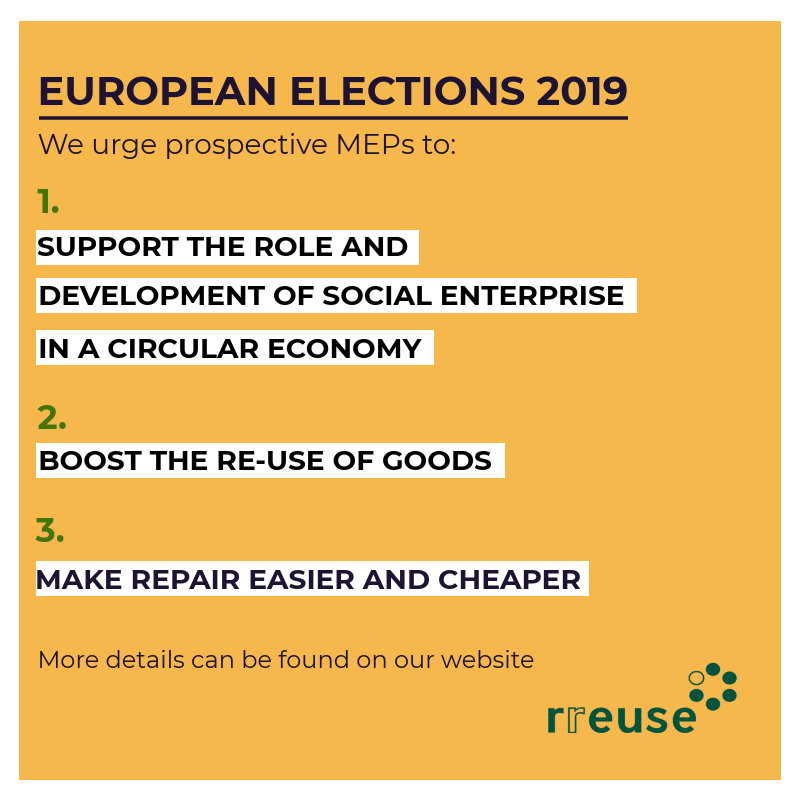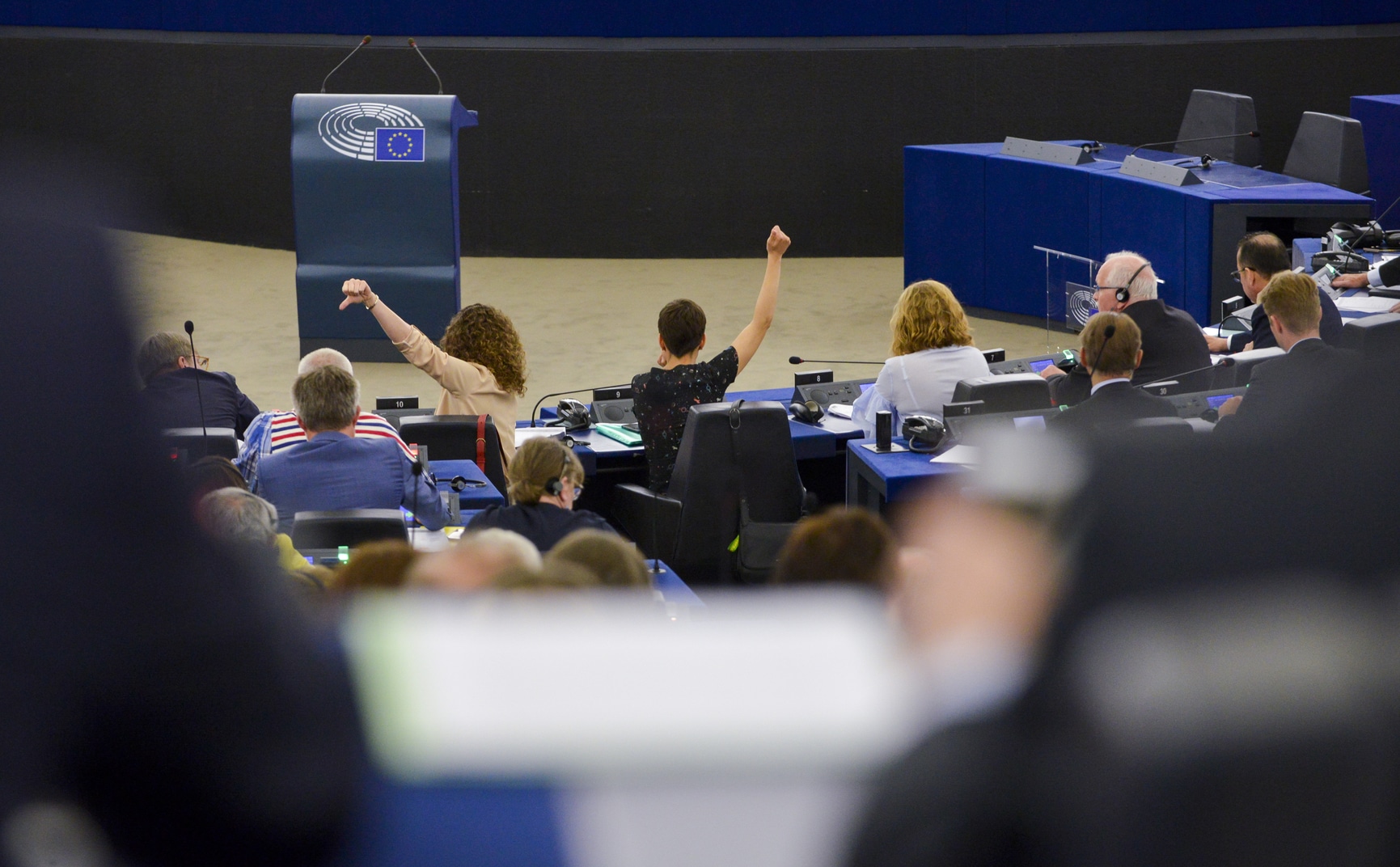Ahead of the European elections on 23 – 26 May 2019, we would like to urge prospective Members of the European Parliament (MEPs) to include the following points into their work programme for an inclusive society and circular economy:
- Support the role and development of social enterprise in a circular economy
Social enterprises are key actors when it comes to the insertion of people at risk of socio-economic exclusion, such as long-term unemployed, ex-convicts, people with a migrant background and people with disabilities into the labour market. Being involved in waste management and prevention, they can earn experience in sorting, collecting, repairing and selling goods, which can help them gain new skills and competencies. Therefore, the RREUSE network invites you to promote the social economy, by raising awareness around the importance of support for social enterprises in local communities. Moreover, with public authorities in the EU spending about 14 % of GDP on public purchases, they have significant potential in driving markets for ethical and sustainable purchases and supporting local job creation. Hence, social public procurement can give social enterprises the opportunity to position themselves, especially in regions where they do not have a longstanding tradition.
- Boost the re-use of unwanted goods
Greater support for waste prevention, such as re-use and repair, in the context of a circular economy is paramount. Whilst support for recycling and demand for secondary raw materials should be boosted, more effort and binding measures must be placed on supporting options above recycling in the waste hierarchy. The recently revised Waste Framework Directive boosts emphasis on re-use and repair with potential targets at EU level being set by March 2024 with a number of EU countries and regions having already set them, serving as inspiration for others to move quickly.
It has to be noted that, for a certain quantity of waste treated, the higher you move up the waste hierarchy, the more jobs you create . Access to re-useable goods, preparing for re-use targets and policies to encourage the buying of second-hand goods are therefore needed to put second-hand first!
- Make repair easier and cheaper
Obstacles to repair products need to be eliminated via eco-design policy promoting durability and including reparability criteria. Every product placed on the market, including electronics, textiles, furniture, etc., should be designed in a way which facilitates re-use and repair. This would help save resources and create more local jobs in the repair sector which is currently going through a major crisis, in particular because it is simply becoming more expensive to repair than replace. Therefore, it is crucial to create fiscal incentives for repair, e.g. make it possible for EU Member States to allow 0 % value-added tax (VAT) or reduced VAT for social enterprises active in repair and selling second-hand products.
Follow our campaign on Twitter using the hashtag #putsecondhandfirst
RREUSE also collaborated with partners from the EaSI Programme on a statement for the elections which mainly focuses on different aspects of support to social enterprise.
- Download the manifesto
- Download the speech bubbles which you can print and support our campaign on social media
- See our Facebook page for the main points of the manifesto translated in different languages

For more information, please contact:
Nina Monjean, Policy Officer, RREUSE
nina.monjean@rreuse.org
Picture credit: Genevieve ENGEL copyright European Union 2017 – Source EP


